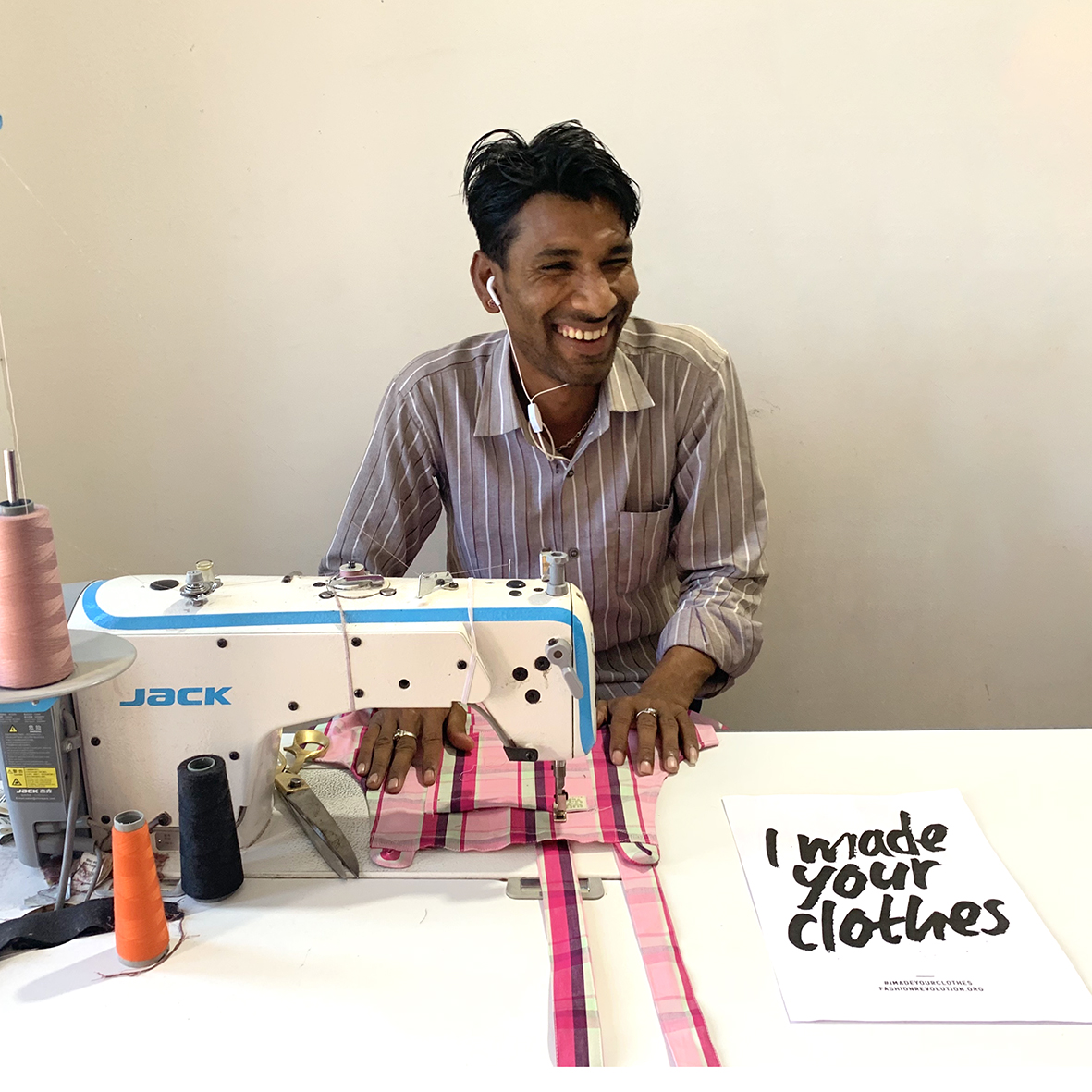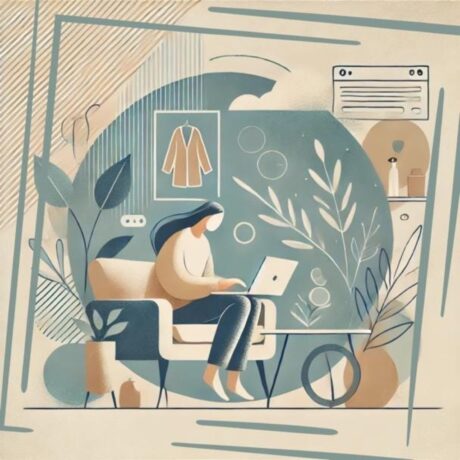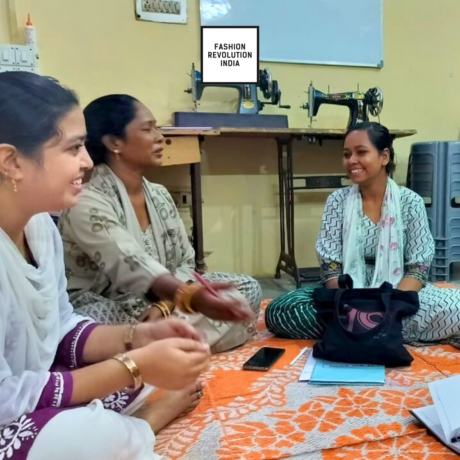How much is a living wage? “Lucy & Yak” on figuring out an equitable wage for workers
We are Lucy and Yak, www.lucyandyak.com an ethical business working towards being sustainable. We are mostly known for our organic dungarees and coats made from recycled plastic. Caring for our staff is the most important thing to us. Lucy and Chris, the cofounders, are always popping to and from India where we have our factory and have a very close friendship with the tailors. If you have any questions, you can email Lucy at lucy@lucyandyak.com. We have attached some pictures from India, too!
Our ethical, dungaree loving, comfort driven clothing brand, Lucy & Yak started out in a van in the wilderness of New Zealand with only two poor travellers, a pair of sewing needles and some old clothes.
How did Lucy & Yak begin?
Lucy and Chris were two stray travellers who were in need of some money to continue exploring the world (as well as stay alive), so they started to collect leftover clothes from hostels and make something people could take away with them and use over and over again.
It all started with tobacco pouches. People started to buy them (sometimes only selling 2 a day) and months later, Lucy and Chris would get people telling them how they had bonded with other travellers over the pouches. Already, the two were building a community.
The pair continued to travel around the world and their love of recycled, reused clothing carried on with them. They returned to the UK after 2 years of travel, still in need of money, but not wanting to work for anyone else, they decided to buy a van (A.K.A. Yak). They lived in Yak for 12 months travelling around the UK. They would collect clothes from charity shops and use the van and Depop to sell them on.
As they sat together one night in Yak, the dungaree conversation began. Where are the comfortable dungarees at? And what happened to the baggy trousers of the 90s? They got creative and drew their ideal design of dungarees – these are now what we know as the Originals!
And that was it. They went travelling again, knowing in the back of their mind they wanted to create some dungarees, but mainly just to spend more time doing what they love. They went to India to explore, but knew if they met the right tailor, they would have a go at creating some dungarees.
Who makes our dungarees?
Lucy and Chris wanted to make dungarees and that was all they knew at this point. But to do it any other way, than to treat people fairly, was just not an option. There was no great business plan to create an ethical or sustainable brand, they just wanted to buy a few pieces, sell enough to earn them £100 per week and also enjoy spending time with the person who was making them.
Lucy was in Rishikesh just hanging about, doing a bit of yoga when she bumped into a couple of friends that they had met in New Zealand all those years before. They told her of a town in Rajasthan that is home to a lot of amazing tailors. So she called Chris and the two of them headed to Pushkar. This was where they met Ismail.
Before meeting Ismail, they had samples made by a few other tailors, who had shops on the main market, but none of them would take them to see the factory where the clothing was made. Until they bumped into Muneer, Ismail’s brother, who took them out to his village to meet Ismail.
Ismail already had a small tailoring business with his two friends, Raju and DP and they shared the same values from the very start. In his own words, “No one is boss here, we are all the boss”. They just knew straight away, that these were their guys! It was like fate!
They got to work on making only a few pairs (30 to be exact) with no intention of becoming business owners – they just wanted to carry on travelling! Lucy modelled them, Chris took the pics and they shipped them over to Lucy’s Mum in Yorkshire. They popped them on Depop and they sold out in under one hour. One hour!
And so they made a website with more dungarees, working with their new pal Ismail. The official start of Lucy & Yak had begun!
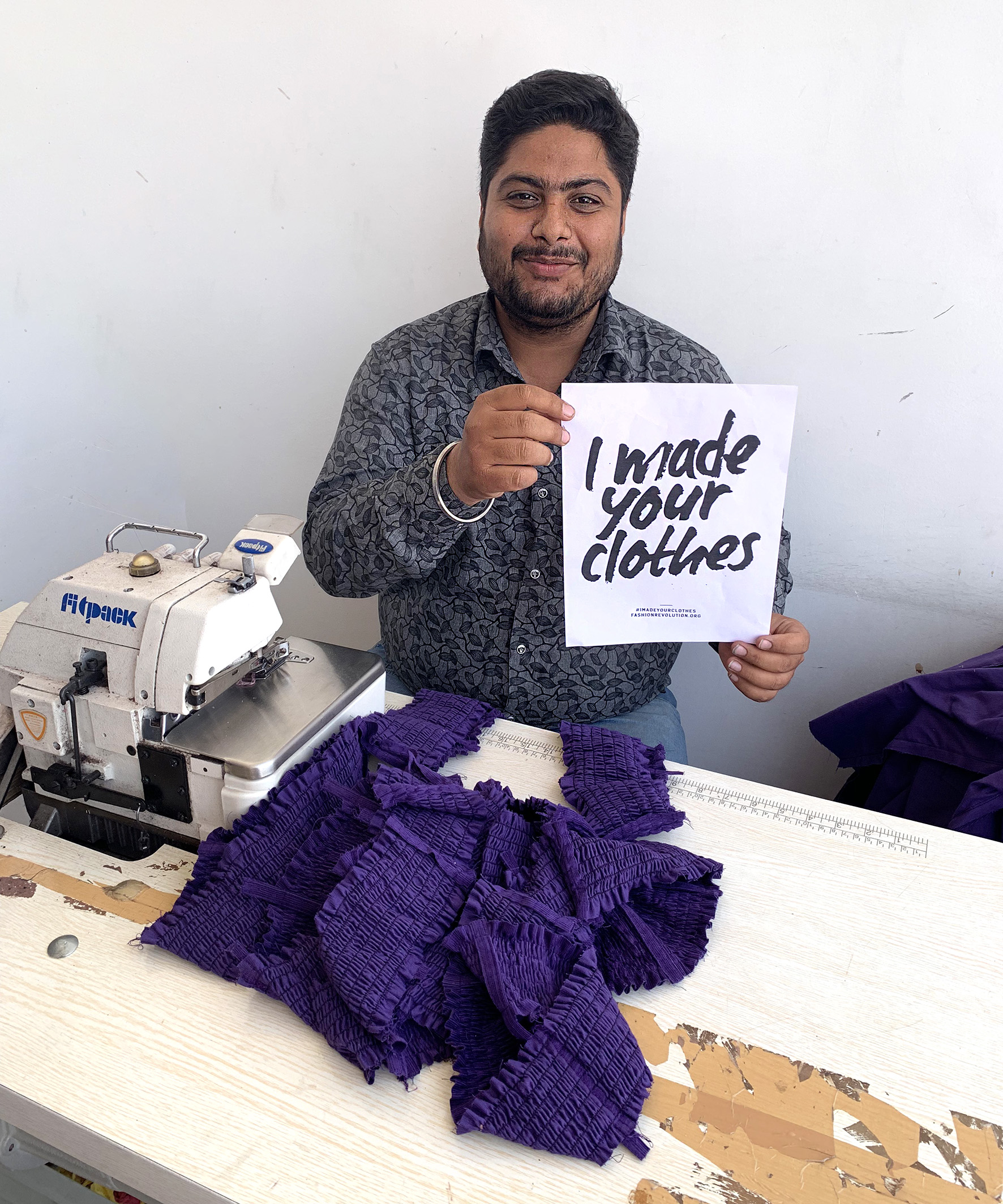
How much are they paid?
But then came the hard decision – working out how to make sure everyone was paid a fair wage! After extensive research on what the cost of living in India is, they found out that the State of Rajasthan’s minimum wage for garment workers was: 6058 rupees for skilled workers and 7358 for highly skilled workers.
Ismail and their tailors already had the potential to earn 14000 rupees a month, if they had regular work. But it was rare that they got constant work, it came and went with seasons. They had little security. Ismail is a great guy, he is the one that went looking for work, he was also the master sample maker. So all of the money they made from each garment was split 50/50.
With Ismail’s 50%, he also took care of the running costs of the factory. So Lucy & Chris knew all they had to do to ensure that every one was paid well, was to make sure they paid a pair price for their garments. The first negotiation was so funny. Ismail still laughs to this day, as they negotiated the price up rather than down. He thought they just didn’t know how to haggle.
They did more research to understand what the the living wage was and for one adult to look after a family of 4 it would be the equivalent of £219 which is 4 times the minimum wage.
And so Lucy and Chris decided to make sure the tailors earn between 21000 rupees and 29000 rupees per month, depending on their skill level. This is the equivalent of £233 and £320.
We experienced a lot of quality issues in the beginning and still get some now, so instead of not paying for faulty garments, Lucy & Chris decided to implement a bonus scheme for the guys in India. If there are no tailoring faults, they each get 500 rupees extra a week. So that’s 2000 rupees extra a month! And honestly, it’s very rare that none of them get it. It just makes us so much happier to know that our workers aren’t struggling for money and can enjoy their lives, and that the quality of their work is constantly improving.
But where do they work?
Now it was about the environment the guys were working in. The team grew so fast, that they were all working in different places around Ismail’s village: Tilora in India. Some people were even working from their homes to help out!
There was nowhere big enough in Tilora for them to rent to get everyone under one roof. So the three of them made the decision to build their very own Lucy & Yak factory. It is completely owned by Ismail and his brother Peeru, but Lucy & Chris helped to fund the build.
Lucy and Chris popped back and forth between Tilora and Yorkshire to help Ismail and his brothers build the factory and finally, it was complete. Everyone was under one, air conditioned, solar panelled, renewably ran factory. This even meant that Ismail could hire more people!
Ismail also employed his first female tailors about 8 months ago, so we have a great team, of men and women. Ismail’s team has grown to 65 people, and as it continues to get bigger, we will face new challenges but we will always know that we have the best guy looking after our production. He cares about people, he really made this easy for us.
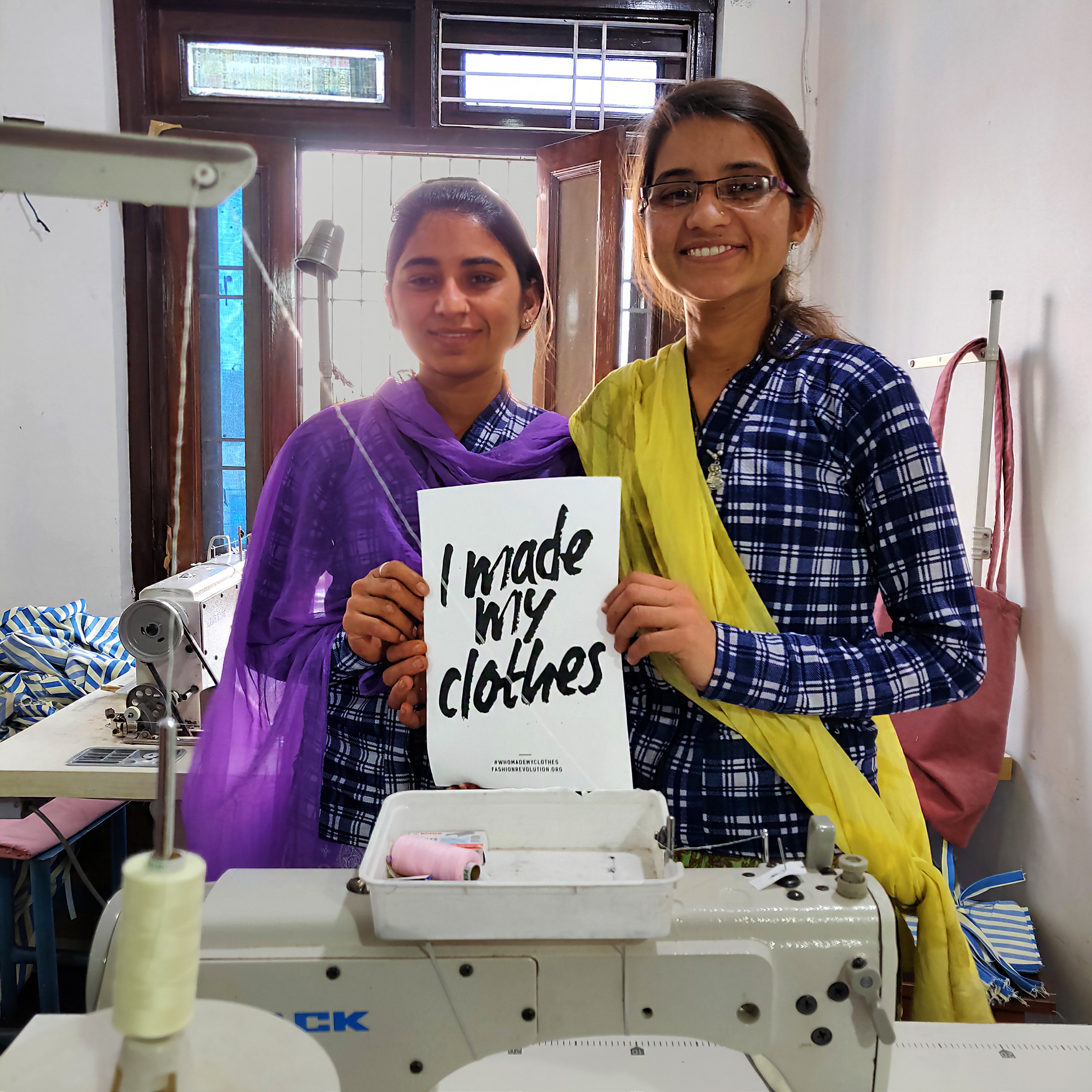
What now?
We have the team here in the UK and the team there in India and we continue to do what we love! We are always coming up with new designs, we always make sure our staff are treated fairly and try our best to look after the environment as much as we can along the way – we even make clothes from recycled bottles now.
We are working on a small made in Britain collection, to run alongside our India collection. And we also have some exciting news about how we can create a circular fashion model for Lucy & Yak in the future.
As we grow as a company, we are still learning. But the upmost importance to us, is making sure everyone who works for us is being paid fairly and that the environment they work in, is the best it can be.
To find out more, head to www.lucyandyak.com
